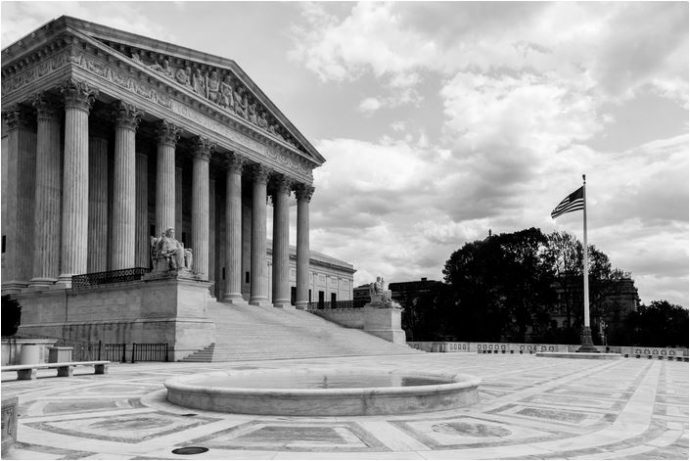Writing at National Review, John Yoo attempts to take to school millions of confused Americans, many of them lawyers, about the fundamental nature of our democratic republic. Because Yoo is a law professor his article is not as strong as it could’ve been — but here are a few of the correct points he makes (the emphasis via bolded text is my own):
[Presidential candidates Mike Huckabee and Ted Cruz have] hit upon an important truth about our Constitution. Contrary to popular belief, Obergefell does not settle the question of gay marriage, because the Supreme Court cannot finally determine any fundamental constitutional dispute. Claims of judicial supremacy have appeared before, ranging from the odious (Dred Scott’s defense of slavery) to the courageous (Brown v. Board of Education’s condemnation of segregation). But these views mistake the Court’s right to decide cases or controversies under the Constitution for supremacy in its interpretation.
Many of our greatest leaders have understood that, in a self-governing republic, the people and not the courts must settle fundamental constitutional issues. President Abraham Lincoln, for example, believed that Dred Scott only decided a controversy between two parties before the court and could not bind the president and other officials. “If the policy of the government upon vital questions affecting the whole people is to be irrevocably fixed by the decisions of the Supreme Court,” Lincoln wrote in his first Inaugural Address, “the people will have ceased to be their rulers.” Instead, the people will have “practically resigned their government into the hands of that eminent tribunal.” Lincoln was right: the Civil War, not the Supreme Court, resolved the question of slavery. While the Constitution does not grant the federal courts the final word, it implicitly gives the courts a right to interpret the Constitution.
After a paragraph, John Yoo continues on that point (again, the emphasis is mine):
But the Constitution does not vest the courts with the exclusive right to interpret its meaning. It nowhere says that the Court’s reading of the Constitution bears superiority over the other branches of government. As Thomas Jefferson wrote to Abigail Adams in 1804 to explain his decision to drop existing prosecutions under the Sedition Act, “nothing in the Constitution has given [the judiciary] a right to decide for the Executive, more than to the executive to decide for them. Both magistracies are equally independent in the sphere of action assigned to them.” Indeed, the separation of powers means that the legislature and the executive also must interpret the Constitution in the course of performing their own unique functions. Congress should not pass bills that violate its understanding of the Constitution; the president should not sign bills that violate his.
Rather than give any one branch the final word, the Constitution creates three branches that can compete over its meaning. The separation of powers means not only that the President, Congress, and the Supreme Court are separate, but that they are also independent of one another. According to Jefferson,
“the opinion which gives to the judges the right to decide what laws are constitutional, and what are not, not only for themselves in their own sphere of action, but for the Legislature & Executive also, in their spheres, would make the judiciary a despotic branch.”
It’s not really that complicated. If you want to get confused, attend most law schools. If you want to stay ignorant about the truth, listen to most politicians and media outlets.
Read John Yoo’s entire article here.
Image credit: coventionofstates.com.

